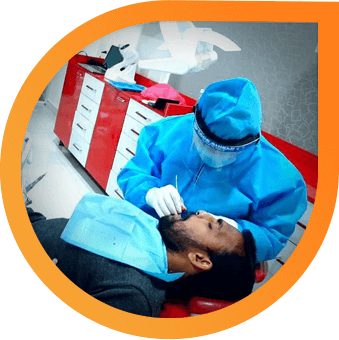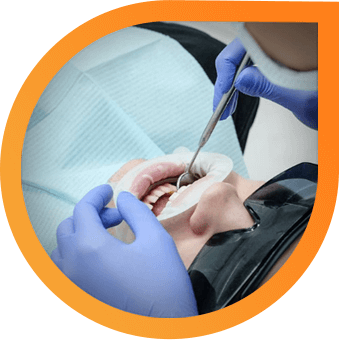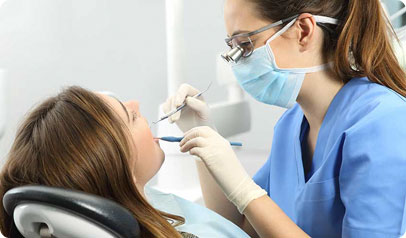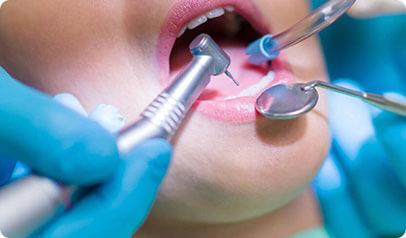The word “surgery” often brings to mind a stay in the hospital, general anesthesia, and perhaps a lengthy recovery period. However, the experience of having oral surgery is usually very different from that. Oral surgery is often performed in a dental office setting, under local anesthesia, with minimal recovery time. Oral surgery can range from routine procedures such as tooth extractions and implant placement to more complex jaw realignment surgeries and emergency care for facial trauma. For those seeking the best oral surgery, finding the Best Oral Surgery in Vijayawada ensures that patients receive top-notch care from experienced professionals in a comfortable and efficient setting.
Oral surgery procedures may be performed to relieve pain, treat an infection or trauma, restore function or improve a person's appearance. Procedures and conditions treated include:
There are a variety of reasons why you may need a tooth or teeth removed. You may have a wisdom tooth that is impacted, a diseased tooth that can't be saved, or overcrowded teeth that need to be removed so more room can be created to facilitate proper alignment during orthodontics. For the best care and expertise in these procedures, you can rely on the Best Oral Surgery in Vijayawada to ensure a safe and effective treatment plan.
Today's preferred method of tooth replacement is a titanium dental implant, which is placed beneath the gum line and into the jawbone during a minor surgical procedure. The implant is then attached to a realistic-looking dental crown that is visible above the gum line and indistinguishable from a natural tooth.
When a suspicious oral lesion is found, a biopsy is often used to detect or rule out oral cancer — a disease that is treatable if caught early. A biopsy involves removing a very small tissue sample for laboratory analysis. If you're looking for the Best Oral Surgery in Vijayawada, it's essential to choose a clinic that specializes in accurate diagnoses, including biopsy procedures, to ensure timely and effective treatment of oral health issues.
Sometimes a person's jaws don't fit together properly. This can affect both jaw function and appearance.
Excess tissue in the back of the throat may need to be removed in certain individuals with sleep apnea.


When conservative remedies fail to relieve chronic jaw pain over a long period of time, surgery may be considered
Facial injuries can affect not only a person's ability to carry on basic life functions such as eating, but also his or her appearance. Knocked-out teeth can sometimes be re-implanted, or replaced with dental implants.
These birth defects are among the most common, estimated to affect around one in 700-800 babies born. With proper surgical treatment, the child has an excellent chance of leading a healthy, normal life.


If you want to replace a missing or failing tooth with a state-of-the-art dental implant your dentist will first need to make sure that you have sufficient bone in your jaw to anchor the implant. This is true no matter what type of tooth is being replaced. However, if it is an upper back tooth and there is not enough bone under the gum where the implant needs to go, the base of the implant could end up poking through an air space (located to the side of the nose) called a sinus cavity. Since you can't anchor a dental implant to air, this presents a problem — but it is one that can often be solved with a minor in-office surgical procedure called a “sinus membrane lift.”


Recently I took root canal treatment from SUSHMA DENTAL CLINIC, Am very happy with thier treatment and I would recommend my friends & relatives to Sushma Dental Clinic if they have any dental problems. Dr.Sushma perfectly identifying our dental problem and suggesting us for the best possible treatment to clear our problem. She is clearing all our doubts and giving us the best treatment. Front office staff is also too good and they keep reminding about our appointments. I can recommend this is one of the best dental hospital in Vijayawada.






Dr.Sushma has moto to serve the society for bright smile on there faces…she explains every step and procedure to provide as much as information she can and provide best clinical experience I suggest to visit Sushma dental care for best dental treatment.






I would prefer saying this is one of the best dental Hospital in Vijayawada. Dr. Sushma garu is an excellent dentist whose main priority is making sure her patients are comfortable...






© Dr Sushma dental. All Rights Reserved. | Website Designed & Developed by Glint Creatives